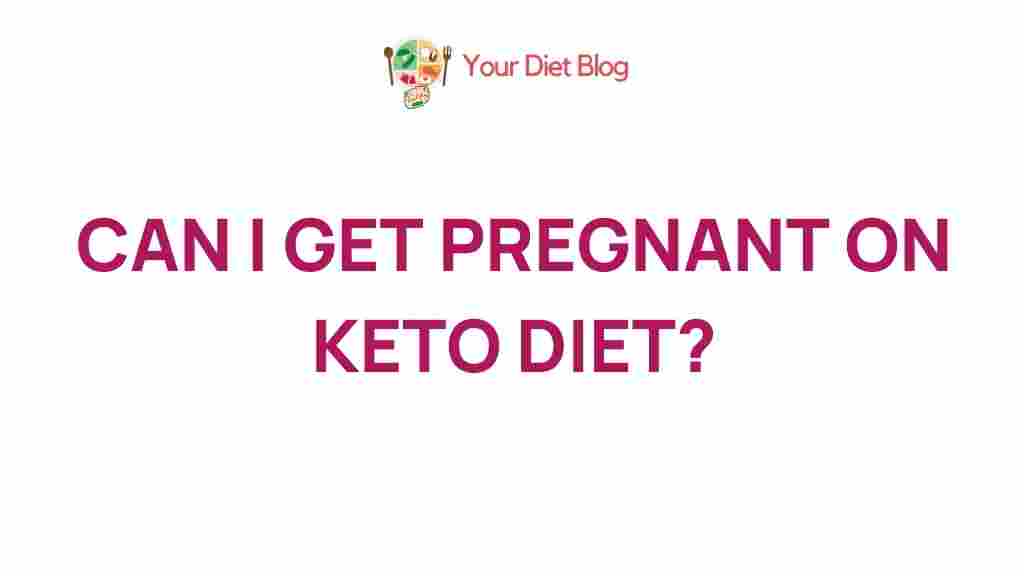The Impact of the Keto Diet on Fertility
The ketogenic or keto diet has been a hot topic in recent years, known for its potential in weight management and overall health. But did you know it might also influence fertility? This low-carb, high-fat diet is reshaping not just the way we eat, but how our bodies function, including reproductive health. In this article, we’ll explore the surprising link between the keto diet and fertility, unraveling its effects on hormones, ovulation, and more.
What Is the Keto Diet?
The keto diet is a dietary plan that emphasizes a drastic reduction in carbohydrate intake while increasing fat consumption. By doing so, the body enters a metabolic state called ketosis, where it burns fat for energy instead of glucose. This diet typically consists of:
- Healthy fats like avocado, nuts, seeds, and olive oil
- Moderate protein from sources like meat, fish, and eggs
- Low-carb vegetables such as leafy greens, broccoli, and cauliflower
While it’s widely adopted for weight loss, its potential impact on fertility is gaining attention.
How Does the Keto Diet Influence Hormones?
Hormones play a critical role in reproductive health. The keto diet is known to stabilize insulin levels, which can positively affect conditions like polycystic ovary syndrome (PCOS), a leading cause of infertility. Here’s how:
- Reduced Insulin Resistance: Lower carbohydrate intake minimizes insulin spikes, which can lead to improved ovulation in women with PCOS.
- Balanced Sex Hormones: The diet may help regulate hormones like estrogen and progesterone, essential for a healthy reproductive system.
- Lower Inflammation: High-fat, low-carb foods often reduce chronic inflammation, which can impact fertility negatively.
Steps to Enhance Fertility with the Keto Diet
If you’re considering adopting the keto diet to boost fertility, follow these steps:
1. Consult a Healthcare Professional
Before making any major dietary changes, consult with a doctor or a fertility specialist. They can assess whether the keto diet is appropriate for your specific health needs.
2. Transition Gradually
Switching to a keto diet abruptly can be overwhelming. Gradually reduce your carbohydrate intake while increasing healthy fats.
3. Focus on Nutrient-Dense Foods
Prioritize foods that are rich in nutrients vital for fertility, such as:
- Omega-3 fatty acids (found in fatty fish like salmon)
- Folate (in leafy greens and eggs)
- Antioxidants (in berries and nuts)
4. Monitor Ketone Levels
Using tools like urine strips or blood meters, track your ketone levels to ensure your body is in ketosis.
5. Pair with Exercise
Regular physical activity complements the keto diet, improving overall health and potentially boosting fertility.
Common Challenges and Troubleshooting Tips
Adopting the keto diet for fertility may come with its own set of challenges. Here’s how to address them:
Keto Flu
As your body adapts to low carbs, you might experience fatigue, headaches, or irritability. Stay hydrated and increase your electrolyte intake to mitigate these symptoms.
Weight Plateaus
Weight loss might stall after a few weeks. Revise your macronutrient ratios or incorporate intermittent fasting to reignite progress.
Adherence Issues
Cravings for carbs can be challenging. Keep keto-friendly snacks like nuts or cheese on hand to curb hunger and stick to the plan.
Testing for Fertility Improvements
If you’re trying to conceive, track ovulation and menstrual cycles to identify any positive changes. You can also consult with a fertility expert for tailored advice.
Scientific Backing: What the Research Says
Studies on the keto diet and fertility reveal promising insights:
- A study on women with PCOS found significant improvements in insulin sensitivity and ovulation with a low-carb diet.
- Another report highlighted the diet’s potential to reduce oxidative stress, which is linked to improved egg quality.
While more research is needed, early findings suggest the keto diet can be a valuable tool in supporting reproductive health.
Additional Resources
For more information on the keto diet and fertility, explore our comprehensive guide. It includes meal plans, recipes, and success stories to inspire your journey.
Conclusion
The connection between the keto diet and fertility is a growing area of interest in health and wellness. By stabilizing hormones, reducing inflammation, and improving metabolic health, this dietary approach may enhance your chances of conception. However, it’s crucial to tailor the diet to your unique needs and consult with professionals for the best outcomes. Whether you’re managing PCOS or simply seeking to boost fertility naturally, the keto diet could be the transformative lifestyle change you’ve been searching for.
Take charge of your health today and explore the possibilities of the keto diet. With the right strategies, the journey to better reproductive health can be both achievable and rewarding.
This article is in the category Nutrition Basics and created by YourDiet Team
